Everywhere you look, people like to talk about the power of motivation. We all think about it at some point or another, we’ve seen plenty of self-help books try to sell us the secrets to it, and we’ve all collected our personal tricks to reignite it in ourselves. Why wouldn’t we? There’s a school of thought that proper motivation and the power of positive thinking are enough to achieve anything. And it’s true, you do need to be moving to be able to make things happen. But something I’ve come to recognize is that we don’t just have to understand the value of motivation but also the nature of something else often at play: inertia.
Opposing Forces
Inertia is one of those things in physics that we all learned about in high school and then most of us promptly forgot. It’s the idea that something will either stay at rest or stay at motion until acted on by an outside force. Something will hurtle through space for an eternity until a force acts to slow it down. Cars require fuel, energy, or a nice slope to get moving and brakes to slow down. A rock doesn’t roll itself unless something pushes it – be it gravity, construction equipment, or Wile E Coyote.
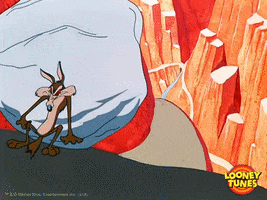
But anyone who’s had time to really look at people understands that human behavior often operates like inertia too. When we’re talking about needing motivation, what we’re really talking about is needing something that can push us out of that mental, emotional, and physical inertia. We’re generally content with doing what we’ve been doing, even if it isn’t the best for us, and we need to have a strong force to push us in another direction. On its surface that makes understanding inertia no different than understanding motivation, but there’s another angle to it that I think we overlook.
See, that dislike of change, that complacency with the direction we’re going in, is just as easily driven by a misplaced motivation. To put it simply: sometimes we’re doing something stupid because we think it’s the right thing to do and we’re motivated to do it right. But, eventually, we realize the things we were trying to do were bad for us and that our motivation suckered us into letting that god damn bird mock us for decades.
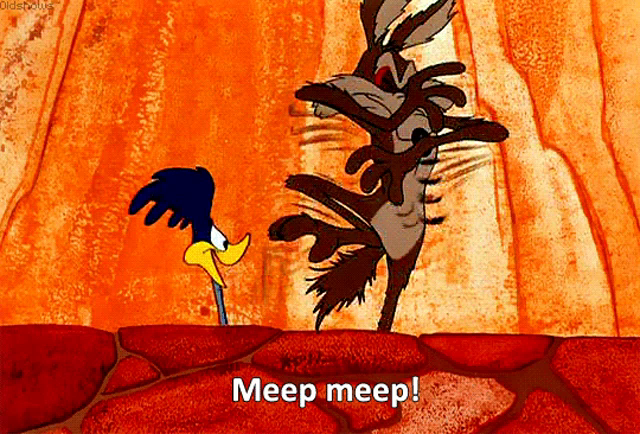
As it winds down, I’ve come to think of 2020 as something of a “year of inertia”. On the one hand, it’s the year where a lot of us started to confront the various facets of our lives that just seemed to be running on autopilot. For many of us, it was a time to recognize we took some things for granted. For others, it came time to recognize we weren’t willing to make changes that we should have a long time ago. But, on the other hand, we were all hit with a force so strong that it put a hard stop to any motion we had going so a lot of these introspections became a little moot. No matter how on the go you were before 2020 hit, 2020 found a way to slam your life to a stop – even if only for a moment.
The thing that got me to think about this so much this year, as I found myself struggling, was realizing that it wasn’t my first time really battling this particular beast.
Some nine years ago I made an educated but slightly misguided decision to self-publish a book. It’s not that self-publishing itself is a bad idea, just the way I was about to do it. It wasn’t a vanity press decision, it wasn’t even a matter of not taking rejection well. No, I just felt there was better opportunity in flying solo than there was in trying to get a traditional publishing deal. In my eyes, there were a handful of people that the industry would decide were winners and the rest of us could pound sand even if we had a good idea. And, hell, I wasn’t completely wrong. I’d listened to multiple agents and publishers talk about how the modern publishing industry expected you to sell yourself and that they were really only going to back you if they thought you were the next phenomenon. So, by my estimation, if they were going to have me sell myself, what did I need them for?
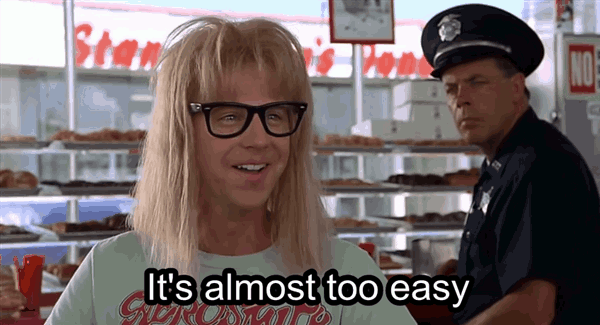
I was highly motivated but not quite ready for what I was getting myself into.
I didn’t know the right ways to approach anything and I was quickly smacked in the face with that. Hell, I’ll admit it, I launched the first book when I only had 45 followers on Twitter. I’d heard off-hand that publishers wouldn’t even look at you unless you had at least 4 digits but didn’t see that as a problem. I thought I would develop a following while cultivating my audience, like people would start to follow my account as I won them over with my books. I had quite firmly put the cart before the horse and was too stubborn to admit it.
Highly motivated, completely ignorant.
For the next few years, I made a mad scramble to put out as much content as I could. I was going to make sure my blog was flush with material, I’d have extra content in the wild, and I was going to get a new book out within 2 years. By the time I was done with that second book, so many people were going to know about the first book that I would have an easier time selling the second and I could just keep building. I didn’t expect an overnight success, but I’d heard enough stories about tenacity winning the day that I wasn’t afraid to grind it out. I’d even heard from one successful independent publisher that the magic number for him was 9 books before he started to see cross-pollination really push things forward. I was hoping to do it before 9, but I was willing to do the work.
The problem was some of my content ideas were laughably overcomplicated, way too involved, or not nearly as clever as I thought they were. Thankfully, most of them died on the vine and never saw the light of day. And, no shit, the most successful thing I ever did as far as extra content turned out to be some tweets of little factoids from the world I was putting into the books. Despite all the crazy ideas I ever had, I’ve heard more positive response from bite sized lore than I ever did for some of my more elaborate efforts. It’s something that’s taken me time to come to grips with, because of inertia, but I realize now that if I’d found a better way to tie my books into those tweets and vice versa, I’d probably be in a better place today. Lessons learned, lessons earned.
Long story short, after releasing the second book, though I’d been grinding, I hadn’t really made the progress I would have liked by then. Worse, due to some issues in my non-literary life, I realized that some of those crazy content ideas would have taken time and energy that I just didn’t have. I came face to face with my mistakes and realized I needed to try to build a profile of some sort before I could launch the third book. I was going to try to do that third launch right. So, I went through the grind, got more followers, networked better and managed to get a couple blog posts on throwaway topics into the range of 20,000 readers. Seeing that I had made those improvements, I wanted to get the series off on a better foot – so I went back through, re-edited the original two and updated them with content that tied them better into the greater plan I’d formed in the years since I first released them.
Fun fact: Tolkien did the same thing with The Hobbit as a way of tying it together better with Lord of the Rings. So, hey, not a completely insane thing to do.
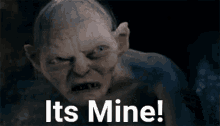
I relaunched the books with new covers, a mighty shit load of edits, and found that I actually did better this time. It wasn’t spectacular, but it was certainly closer to that image I had of the grind. If I just kept pushing them, and I got the third book out, maybe this time it was going to work like I thought it should. All I needed to do was keep motivated, stay on track, and initiate the plans I had for a better launch. I was starting to build actual momentum for the first time, and I was hoping to carry that into the third book. Unfortunately, I made the tactical error of carrying that momentum into 2020.
Momentum is another of those things we often take for granted. Like motivation, we’re so focused on just having it that we don’t fully understand it. Like motivation, it’s really just a part of the dynamics of personal inertia. Once momentum is strong enough, it’ll bowl over just about anything in your way. There is no way on earth to stop a person who’s sold a billion dollars of anything from selling another billion dollars of something. There is no force on this planet that can keep a multi-million follower influencer from getting away with damn near anything. Proper momentum is basically the Juggernaut.
But early momentum tends to be very delicate and fragile. Sometimes, if you’re lucky, the thing you’re pushing gets away from you and takes a life of its own. You go from obscurity to a sudden and amazing climb. But this version of momentum is generally based on luck, requires outside intervention, and is damn near impossible to predict.
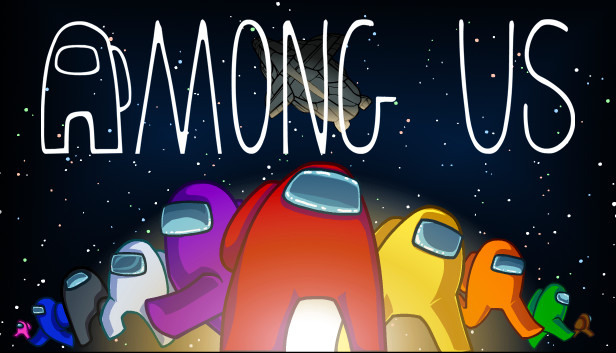
The rest, the most common, is surprisingly delicate and fragile. Of course it is, early momentum is basically driven by you as you try to push that boulder we were talking about earlier. It takes dedication, perseverance and, yes, motivation. And if you happen to lose any of those?
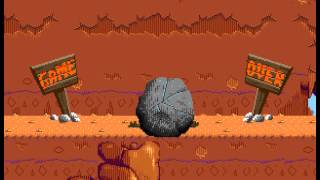
Ironically, in a year where I made a vow to use my time better, it was surprisingly hard to keep up that momentum – even harder to stay motivated – and I imagine I’m not alone in that. This has been a hard year for most of us. We’ve all been through a lot of crazy shit. Some of us have been through some extra slightly more mundane but generally unpleasant shit. But there’s been some shit in there somewhere. Sure, there were a few out there who turned this into some super productive time where they got literally everything done (or at least tried to look it on social media) but the rest of us have watched our lives enter a holding pattern. Even for we creatives who are used to being holed up and alone with our keyboards, this has been a stressful time. Faced with the various shitshows in my life, both global and personal, I kind of just bottled myself up with my third book and did my best to ignore everything happening outside my window.
I think, from talking to a couple people, more than a few of you tried to do the same.
Now, while a lot of things are still basically on fire, people like me are trying to figure out how to break out of our current states of inertia. But another reason why I think we need to recognize and understand inertia is that, as powerful as motivation is, really bad inertia can make motivation hard to come by. It helps to recognize that our lack of motivation is kind of self perpetuating, that it’s not a sign we’ve reached an end of our motivational reserves but that our current status quo comes with some baggage. So as I sort my thoughts and try to recover from what I’m going to admit has been a dark time in my life, remembering this isn’t the first time, I thought I’d share an epiphany I had with others who might be having a similar problem.
Sometimes an object at rest can still have a whole lot of potential energy.
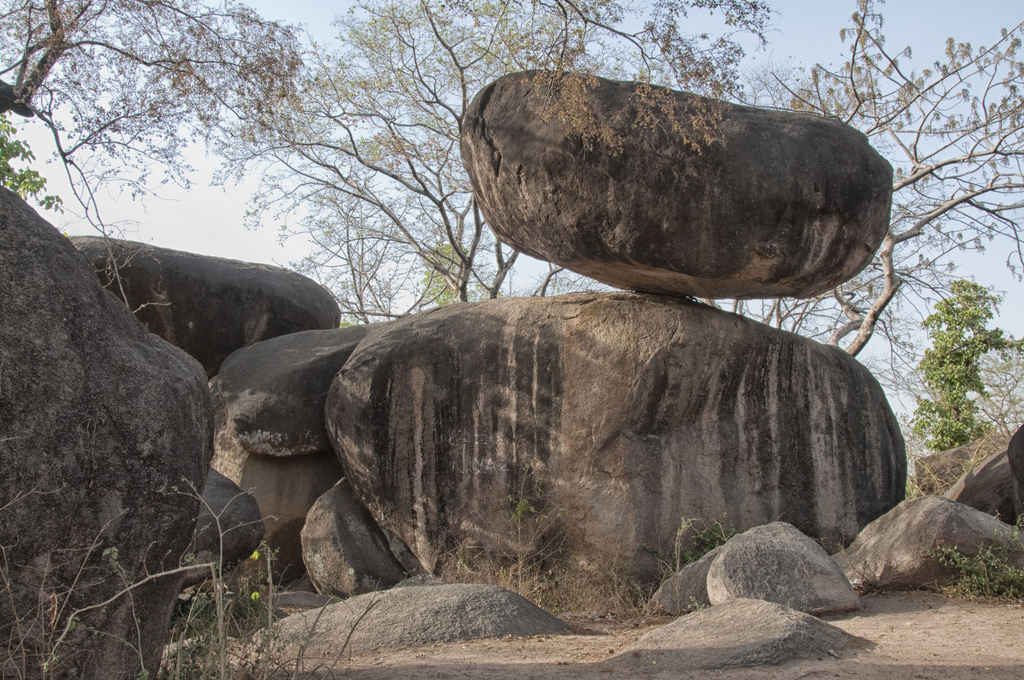
This is a chance to come back stronger than we were before, to find a new, better status quo where our inertia is carrying us in a better direction. We don’t need back all of the momentum and motivation we had before our lives turned to shit, just enough of it to get the ball rolling so we can enter that new inertial state. More importantly, we don’t have to do it by sheer force of will. This weird, stressful time in our lives isn’t just a curse – it’s a moment to reflect and reassess the old behaviors and routines that weren’t doing us any good. This is a time to reapply our energy in smarter ways. We have a chance to take accounting of our strengths and weaknesses and refocus our efforts in the right areas. So we can either see this as the year that slammed the brakes on everything or we can use this weird time for perspective. Maybe, with newfound perspective, we can stop chasing that damn bird. Just…
Don’t make the mistake of going after that damned rabbit instead.
(As mentioned before, I write books! Give them a read, give them a review, and be sure to tell your friends about them. In the meantime, you can find those snippits of lore over on twitter.)


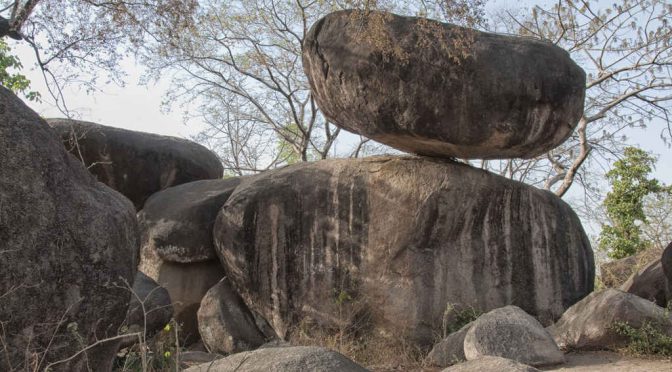





The stone didn’t fall, did it?